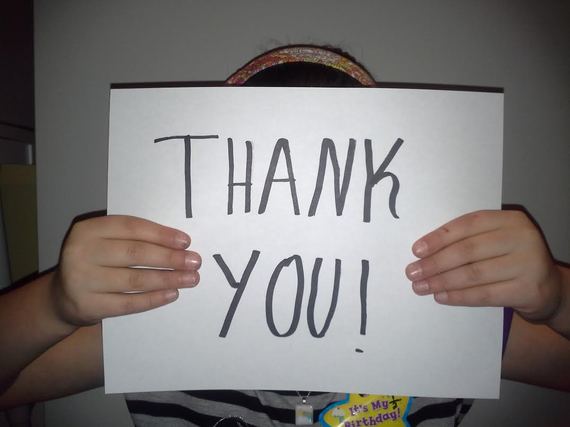I started to see it happen last year when my daughter was in third grade. She and her friends lost all ability to accept a compliment. If you told one, "Hey, congratulations on your science project," she'd respond, "Thanks, but did you see Christine's? It is amazing!" If a girl told her friend, "I love your curly hair," the latter would respond, "Yuck. I wish my hair was straight like yours." It didn't matter what the compliment was; the goal was to deflect the praise, deny it and get rid of it faster than a hot potato.
This isn't new behavior. Probably during prehistoric times, a cave woman who was complimented on the tasty meat she cooked over the fire would reply, "Oh, you should taste how Ilka prepares yak; it's truly incredible." Try telling even the most empowered modern woman today how wise she is, or how flattering her jeans look on her. Chances are she will tell you about the dumb thing she did last week, or how hippy her jeans make her look. Do you do the same? (I have.)
This is not about false modesty or fishing for compliments. It's about something much bigger. It's about the social need we feel to fit in with the pack. The goal for girls is to blend in with their friends, and anything that singles them out -- even praise -- is a serious threat. This is how Renee Engeln, a psychology professor at Northwestern University, explained the unspoken rules in a Today.com Health article: "Believe in yourself, but never admit it out loud, lest you make another woman who doesn't feel good about herself feel bad. If you're raised to think it's arrogant to ever say something positive about yourself, it makes it hard to accept a compliment."
So why is this a problem? The bottom line is, what we say about ourselves matters. It affects how we think about our essential worth, and how we make choices. Being able to accept praise expresses to the world that we understand our value. If we can't learn how to identify and own our strengths, privately and publicly, we can't possibly reach our full potential, whether it's personal, professional or otherwise.
As for how we moms can help our girls accept praise, we teach them to say "thank you" when they receive a compliment. That's it. We can do this by modeling it ourselves. When someone commends you, especially in front of your daughter, look the person in the eye, smile and say a genuine thanks. If possible, open the topic up for discussion with your daughter. The next time you catch her deflecting a compliment, ask her later when you're alone why she did that in a non-accusatory tone. She'll probably ask, "Well, what am I supposed to say?" Teach her, and have her practice with you (even if she rolls her eyes and says "this is dumb"; it's not).
The earlier we get our girls to break the habit of rejecting praise, the better. This is not something they will outgrow on their own. While leading a workshop recently for college-age women on this topic for Strong Women, Strong Girls (a mentoring organization for girls in grades three to five with the goal of helping them develop skills for lifelong success), I tried an experiment. I asked each college student to look me in the eye while I told her that she was an excellent mentor, and then asked her to say "thank you." Some nailed it. Others had trouble making eye contact, a few giggled and several whispered "thank you." It was a start, and they promised to keep practicing and bring back this lesson to the girls they mentor each week. The more females learn to do this with intention and keep at it, the less awkward it will feel. Let's all fix this problem together. Come on, it's just two little words.
Also on HuffPost:

